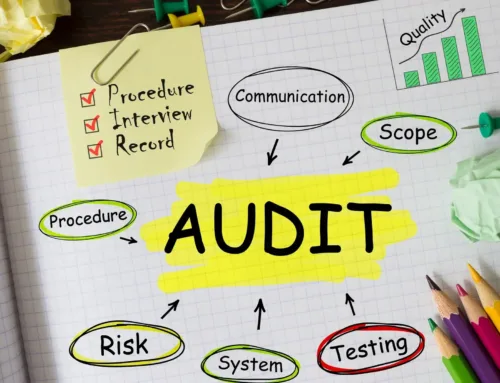Introduction
Good record-keeping is essential for the success and sustainability of small businesses. It involves keeping accurate and organized records of financial transactions, such as sales, purchases, and expenses. Proper record-keeping not only helps businesses comply with tax laws and regulations but also provides valuable insights into their financial health and performance. This guide explores the importance of good record-keeping for small businesses and provides tips on how to maintain accurate records.
1. Compliance with Tax Laws and Regulations
One of the primary reasons for maintaining good records is to comply with tax laws and regulations. Small businesses are required to keep records of income, expenses, and other financial transactions for tax purposes. Proper record-keeping ensures that businesses have the necessary documentation to support their tax returns and can help prevent tax-related issues, such as audits and penalties. 
2. Financial Management and Decision-Making
Good record-keeping is essential for effective financial management and decision-making. Accurate and organized records allow businesses to track income and expenses, monitor cash flow, and assess profitability. This information is critical for making informed decisions about pricing, budgeting, and investment opportunities.
3. Monitoring Business Performance
Keeping good records enables small businesses to monitor their performance over time. By comparing current financial data with historical records, businesses can identify trends, track growth, and evaluate the success of their strategies. This information can help businesses identify areas for improvement and make adjustments to achieve their goals.
Read More: Financial Forecasting: Planning for a Successful Future
4. Facilitating Access to Financing
When seeking financing from banks or investors, good record-keeping is crucial. Lenders and investors rely on financial records to assess the creditworthiness and viability of a business. Accurate records demonstrate that a business is well-managed and financially stable, increasing its chances of securing financing at favorable terms.
5. Legal Protection and Dispute Resolution
Maintaining good records can provide legal protection for small businesses. In the event of a dispute with a customer, vendor, or employee, accurate records can serve as evidence to support the business’s position. Proper record-keeping can also help protect against fraud and identity theft by providing a clear audit trail of financial transactions.
6. Efficient Business Operations
Good record-keeping can streamline business operations and improve efficiency. Organized records make it easier to track inventory, manage invoices and payments, and reconcile bank statements. This efficiency saves time and reduces the risk of errors, allowing businesses to focus on serving their customers and growing their business.
Conclusion
Good record-keeping is essential for the success and sustainability of small businesses. By maintaining accurate and organized records, businesses can comply with tax laws, make informed financial decisions, monitor their performance, access financing, protect themselves legally, and operate more efficiently. Investing time and effort in good record-keeping practices can yield significant benefits and help small businesses thrive in today’s competitive marketplace. 
FAQs
1. What records should small businesses keep for tax purposes?
Small businesses should keep records of income, expenses, and other financial transactions that are relevant to their tax returns. This includes sales receipts, purchase invoices, bank statements, and payroll records. It’s also important to keep track of any deductions or credits claimed on tax returns.
2. How long should small businesses keep financial records?
The length of time to keep financial records depends on the type of record and jurisdiction. In general, it is advisable to keep financial records for at least seven years to ensure compliance with tax laws and regulations. Some records, such as contracts or agreements, may need to be kept indefinitely.
3. What are the consequences of poor record-keeping for small businesses?
Poor record-keeping can lead to a variety of problems for small businesses, including inaccurate financial reporting, difficulty in tracking income and expenses, and non-compliance with tax laws and regulations. It can also make it challenging to access financing or resolve disputes with customers, vendors, or employees.
4. How can small businesses improve their record-keeping practices?
Small businesses can improve their record-keeping practices by implementing a system for organizing and storing financial records, using accounting software to track income and expenses, and maintaining regular backups of electronic records. It’s also important to stay organized, keep receipts and invoices organized, and review records regularly for accuracy.



